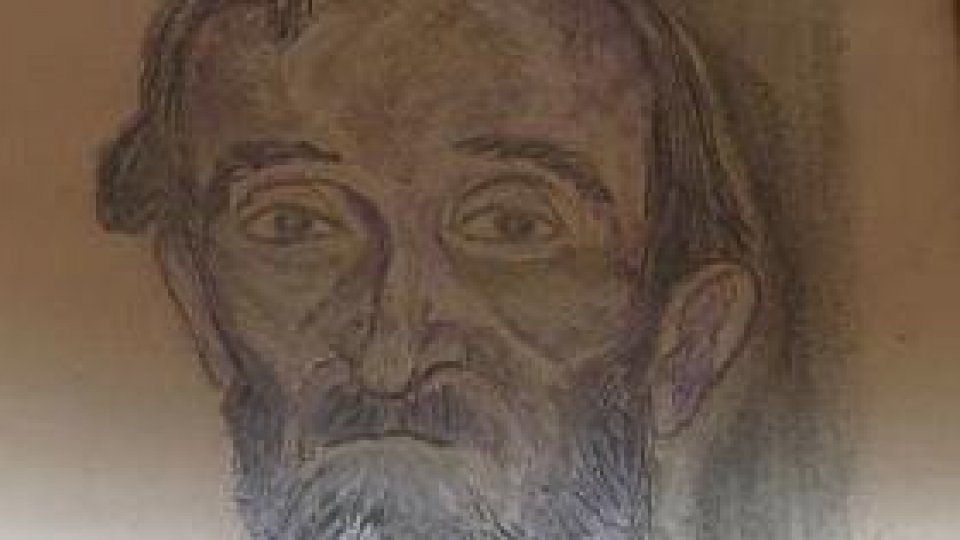Bacovia is dead, long live Bacovia!
‘Poets, never write for salons!’
Articol de Mihaela Letiţia Crăciun, 09 Februarie 2011, 20:10
The landscape of literary museology in Bucharest is rather dull compared to the number and good name of the writers who lived in a city that used to be a small market town.
Laws prejudice and citizens regulate
The metropolitan museums devoted to writers are less than one hand: Tudor Arghezi - Mărţişor, George and Agatha Bacovia, Liviu Rebrenu, Ion Minulescu - Claudia Millian and George Calinescu.
All of them, patrimony included, were donations, ‘charity’: generous gifts for which the Romanian government did not move one finger.
--fb1On the contrary, the donation made by Agatha Bacovia, the poet’s wife, was delayed for a decade because of the bureaucratic maze.
Corneliu Lupeş, the coordinator of the ‘Memorial Houses’ section within the National Museum of the Romanian Literature, provides a further argument: ‘62-year old Agatha did not know that back then it was difficult not only to gain your rights, but, paradoxically enough, to grant them as well.’
‘I understand how hard it is to receive, but not to give something; it is incredible to see the terms in which a donation can be refused.’
10 years for a donation
One year after the death of George Bacovia the government adopted the phrase ‘Collection of public utility’ and used it to get rid of any financial implications.
The disguised refusal was confirmed by documents and notices issued by the institutions of that time. The maintenance of the patrimony remained in the exclusive care of his wife and son, Gabriel Bacovia. Almost 10 years after Bacovia’s death, in 1966, the government accepted the donation. That is when the Memorial Museum was established.  Gabriel Bacovia, the son of the two writers, spent his childhood in this ‘democratic neighbourhood’, as Bacovia himself described it.
Gabriel Bacovia, the son of the two writers, spent his childhood in this ‘democratic neighbourhood’, as Bacovia himself described it.
Briel, as his friends and family used to call him, took care of the cultural inheritance after his mother died and organised the Bacovia literary circle in his parents’ house.
The George and Agatha Bacovia Memorial House is neighbours with Tudor Arghezi’s ‘Mărţişor’.
The two museums celebrate ‘the memory of the representative of the first two letters of the poetry alphabet’, Corneliu Lupeş quotes Gabriel Bacovia whom he met back when he was the curator of the museum.
George Bacovia exceeded the expectations of his time. He was born in a Moldavian market town which he always missed. He spent a great deal of his life travelling between Bacău and Bucharest. He was not fond of Bucharest and the capital city did not receive him with open arms either.
He studied law and got his license in a profession he never really practised. He divided his time between writing and playing the violin, between his family and a job as a clerk, between the grey of the streets and the monotony of his chamber.
The world of the Lacustrine
At a crossroads of paths and time, between the Giurgiului and Olteniţei streets, a back street bears the name of George Bacovia. Its story begins in 1933.
At that time, the small street full of Bacovian memories was called Frăsinetului and was located outside town, in the Şerban Vodă village.
Seven decades ago, the grey of the outskirts was typically Bacovian, as well as the modest households that resembled their own house built with savings and loans.  The big city and its noise remained far from the neighbourhood with a cemetery, with a pub in the corner of the street and monotonous streets. All Bacovia was left with was the leaden outskirts and the garden in front of his house.
The big city and its noise remained far from the neighbourhood with a cemetery, with a pub in the corner of the street and monotonous streets. All Bacovia was left with was the leaden outskirts and the garden in front of his house.
Back then the small street and the house were very similar to the world of Bacău, the poet’s home town. ‘In Bacău grey is a frequent colour’, Bacovia wrote. ‘I borrowed it from nature and used it in my poems.
Violet too. I’ve written most of my poems starting with familiar elements and autobiographical data.’ However, even if Bacovia had been born in Tecuci, he would have still written Bacovian poetry’, somebody once said.
Poetry: Poverty
Perhaps Bacovia enjoyed his isolated little house, a miniature building with three rooms, which was a sign of a precarious financial situation.  The first outlines that define the Bacovian atmosphere start with the neighbourhood that hosted him. ‘Bacovia’s house is located in a proletarian neighbourhood, isolated, pauper.
The first outlines that define the Bacovian atmosphere start with the neighbourhood that hosted him. ‘Bacovia’s house is located in a proletarian neighbourhood, isolated, pauper.
It is here where we discover the real Bacovia; if you were to move him in a mansion, with Arghezi, he would lose credibility. An authentic museum should convey the tutelary spirit of the owners’, Corneliu Lupeş said.
The museum-house recreates the world of Bacovia from undiscovered pieces of reality. It has changed so little since the time the poet used to sit at his desk writing and twisting his cigarettes.
Museum specialist Titus Bazac, who takes care of this cultural heritage, tells us that the posterity of the poet was preserved by Agatha, his wife, who took care of his life and his work, posthumously promoted his memorialistic image through republications of his poems and periodic meetings held at the museum.
Since Agatha herself was a poet, a prose writer and a memoirist, she was a true entrepreneur. For 30 years she protected her husband from the adversities of his fellow writers and even from his own. His lack of interest in his work is symptomatic: ‘His volumes were published by his close friends’, the museum specialist states.
The Lead Alchemist  Being a patient of the sanatorium for mental diseases, the poet goes through a period of perpetuate convalescence during which the good news intersperse with crises. He comes out of the sanatorium as ‘a mere shadow’, Al. Macedonski noted.
Being a patient of the sanatorium for mental diseases, the poet goes through a period of perpetuate convalescence during which the good news intersperse with crises. He comes out of the sanatorium as ‘a mere shadow’, Al. Macedonski noted.
A student of his, whom Bacovia was teaching drawing lessons in 1927, recreated the portrait of the poet, noting: ‘he was a thin, ill man, who used to take his handkerchief to his mouth whenever cough would suffocate him.’
Even though the patrimony is not thematically organized, the style preserves to the most subtle details the story of those who lived in it: from the violin strings which the poet used to sing to to his drawings and the cane leaned against his desk.
The simplicity of the three rooms that ‘the lead alchemist’ walked about, accurately convey its image.
‘High school, cemetery of my youth...’
There are three showcases in the vestibule that contain literary manuscripts, documents, anthologies, photographs which belonged to the Bacovia spouses.
For Bacovia, the high school where he studied with severe teachers remained the ‘cemetery of his youth’.
However, the poet had a talent for interdisciplinary subjects, especially for drawing and playing the violin.
 |  |
The collection includes not only the poem volumes that bear the poet’s mark, but also medals, drawings and caricatures which illustrate the concerns of Bacovia as an adolescent.
30 drawings inspired by Bacovia’s poems, which were a gift from painter Spiru Vergulescu for the author of Bourgeois stanzas, are exposed on one wall.
Agatha’s room still preserves the simple atmosphere.
The furniture is discrete and decorated with framed photographs depicting the madame of the house at different ages. Hidden among the photos, there are two pots, a table clock and a gramophone that bears the mark of passing time.
The room also hosts a special tête-à-tête table placed between the entrance doors of the vestibule and the living room.
The ladies used to have small talks while drinking a cup of coffee. There are also oil paintings portraying the Bacovia spouses and works belonging to Cecilia Cutescu Stork, a friend of Agatha.
The poet – the violinist  The library resembles a sentimental bazaar at first glance: the violin without a bow, the poet’s devoted partner from his youth until his old age. Next to them, copies of the ‘Music’ magazine, the poet’s death mask, music scores of some songs on Bacovian verses.
The library resembles a sentimental bazaar at first glance: the violin without a bow, the poet’s devoted partner from his youth until his old age. Next to them, copies of the ‘Music’ magazine, the poet’s death mask, music scores of some songs on Bacovian verses.
‘I like playing the violin, songs have a tremendous influence on me. I compose the music first and only after I write the lyrics, either by notes or by the ear of the soul’, the violinist-poet said.
Bacovia lived isolated and did not communicate much with other people; and that is why he said: ‘I write music...and sometimes I take notes so that I could read them again later. It is not my fault that these simple notes take the form of lyrics and sometimes they sound just like groans. They are, but only for me.’
Memories from beneath the ground
The hosts used to receive the few friends they had, among them Tudor Opriş, Eugen Jebeleanu and Cicerone Teodoresc, in the guest room, and sit all together at the oval table.  The showcase, framed by the plaster busts of the two writers, is from the same collection as the table and the other pieces of furniture, all black, the dominant colour in the lyric of the one who described himself as ‘Alone, Alone, Alone...’. ‘I never get bored and loneliness does not trouble me. Because of my temper, I have fatally chosen this kind of life. And then again, I have never been too healthy. (...) Some of my friends tell me I run away from people. That is an exaggeration. I love people and I watch them with interest through the windows of my house.’
The showcase, framed by the plaster busts of the two writers, is from the same collection as the table and the other pieces of furniture, all black, the dominant colour in the lyric of the one who described himself as ‘Alone, Alone, Alone...’. ‘I never get bored and loneliness does not trouble me. Because of my temper, I have fatally chosen this kind of life. And then again, I have never been too healthy. (...) Some of my friends tell me I run away from people. That is an exaggeration. I love people and I watch them with interest through the windows of my house.’
Somewhere, behind the table, a small wooden ‘cabinet’ is hiding a radio from the ‘20s. Bacovia enjoyed staying alone in the dark, listening for hours in a row, according to Agatha’s memoirs.
The wall next to the cabinet is framed by a window which faces the garden where his wife used to grow roses. From this angle one can take a glimpse of the bust of the poet made by Miliţa Pătraşcu.
The Cell  Bacovia’s work room recreates the authentic image of the one who could ‘hear the matter cry’. Although the Lilliputian-sized room is crowded with furniture, the decoration is simple, just like his verses are.
Bacovia’s work room recreates the authentic image of the one who could ‘hear the matter cry’. Although the Lilliputian-sized room is crowded with furniture, the decoration is simple, just like his verses are.
Here, in the cold modesty of the room that resembles a cell, Bacovia used to sit quietly, surrounded by cigarette smoke, looking at the garden and enjoying his beloved loneliness.
Solitary and austere, living like a hermit,, unable to communicate too much with other people, ‘I often talk to myself’, the poet used to say. Seems the perfect place for Bacovian feelings, to ‘pull the drawbridge back’ in a ‘mal de siècl.’
Time couldn’t wait any longer?  On Bacovia’a desk one can see a wooden stylized leaf – support for two ink pots, smoking pieces, rolling paper box, two pipes, an ashtray, a pencil, a coup de papier.
On Bacovia’a desk one can see a wooden stylized leaf – support for two ink pots, smoking pieces, rolling paper box, two pipes, an ashtray, a pencil, a coup de papier.
The closet is placed an inch away from the bed covered with a rug in Bacovian shades.
‘Agatha stopped the clock at 8:10 a.m. on the morning of May 22, 1957, when Bacovia died in this chamber he held so dear to his heart. She also ripped off the page in the old calendar’, Titus Bazac says.
The Marginal
Bacovia broke the rules of his time through his verse and public image. The man who said he did not have any poetic creed, except perhaps the advice ‘Poets, don’t write for salons!’ was never a ‘man of the world’.
The isolation from people was not only physical. He is marginal through his discourse and choices.
Diaries and persons who could testify to have met him, are missing. ‘Bacovia does not have a phone, he is not a member of the Academy, he is not keen on premiers or on being seen in public very often.’ The poet who ‘made gold from lead’, as Macedonski describes him in a quatrain, remains ‘a ghost from the world he created’, Nicolae Manolescu noted.
‘Bacovia is not being interrogated or arrested. Bacovia is being ignored.’  Bacovia began his career in a difficult period, on the eve of the first outbreak of war. He published his last volume in an even harder time: the establishment of communism.
Bacovia began his career in a difficult period, on the eve of the first outbreak of war. He published his last volume in an even harder time: the establishment of communism.
According to the custom, the ‘partisans’ of the new ideology exploited the social aspect of his poetry. His verses of the ‘Last poem’ are used as banner text: ‘Finis...contemporary history/ It is time... all nerves are aching’.
The poet never made any gesture that would have revealed an affiliation to any literary ideology. ‘I read them all, but I admire none’, he said.
The ‘Decadent’ Bacovia, shy and discrete, ‘has nothing to explain to the world in which he lives, he does notargue with anybody. He does neither accuse, nor justify. His literature describes Bacovia best. He is not being sued, nor interrogated nor arrested. Bacovia is being ignored’, noted a chronicler of the time.
Bacovia is dead, long live Bacovia!  Perhaps failure was actually the poet’s real chance to escape to his most sung poem, ‘December’, to the reading of some stories of the poles: ‘Flood is behind and before us/See how December is snowing, /Don’t laugh... just keep reading’.
Perhaps failure was actually the poet’s real chance to escape to his most sung poem, ‘December’, to the reading of some stories of the poles: ‘Flood is behind and before us/See how December is snowing, /Don’t laugh... just keep reading’.
According to Manolescu, Bacovia is ‘the only poet to have descended into hell’, his life is the ‘hell’ and his poetry ‘merges with his own existence’.  A letter addressed to Agatha in 1941 shows that the famous linguist believed Bacovia was to be dead: ‘Dear Madam, please send us a photo of your deceased husband for the History of Romanian Literature.’
A letter addressed to Agatha in 1941 shows that the famous linguist believed Bacovia was to be dead: ‘Dear Madam, please send us a photo of your deceased husband for the History of Romanian Literature.’
Bacovia lived 76 years: ‘I do not wonder how Bacovia did not live longer, but rather how he lived so long in view of the poor health he had been suffering since he was very young’, Corneliu Lupeş states.
Rehabilitation
Bacovia’s recognition evolved dramatically. The poet of neurotic and depressing autumn was initially considered a dilettante, a marginal poet. The sixties generation rehabilitated his image. The poet who discovered the recipe for modern poetry ranks third in the top 10 best Romanian poets of all time, according to a ranking of 34 literary critics published in ‘România liberă’. The city of Bucharest ‘honours’ him in silence, the same silence that was so dear to the poet. When we visited his home, we were struck by the lack of information starting with the street signs.
The city of Bucharest ‘honours’ him in silence, the same silence that was so dear to the poet. When we visited his home, we were struck by the lack of information starting with the street signs.
His Bucharest museum offers a glimpse of the memoirs.
The story of his life continues in Bacau. The Moldavian market town honours its poet as best as possible. There is a memorial house, a statue, literary festivals and a magazine - ‘Ateneu’, always following his trails.
Translated by: Manuela Stancu
MA Student, MTTLC, Bucharest University














